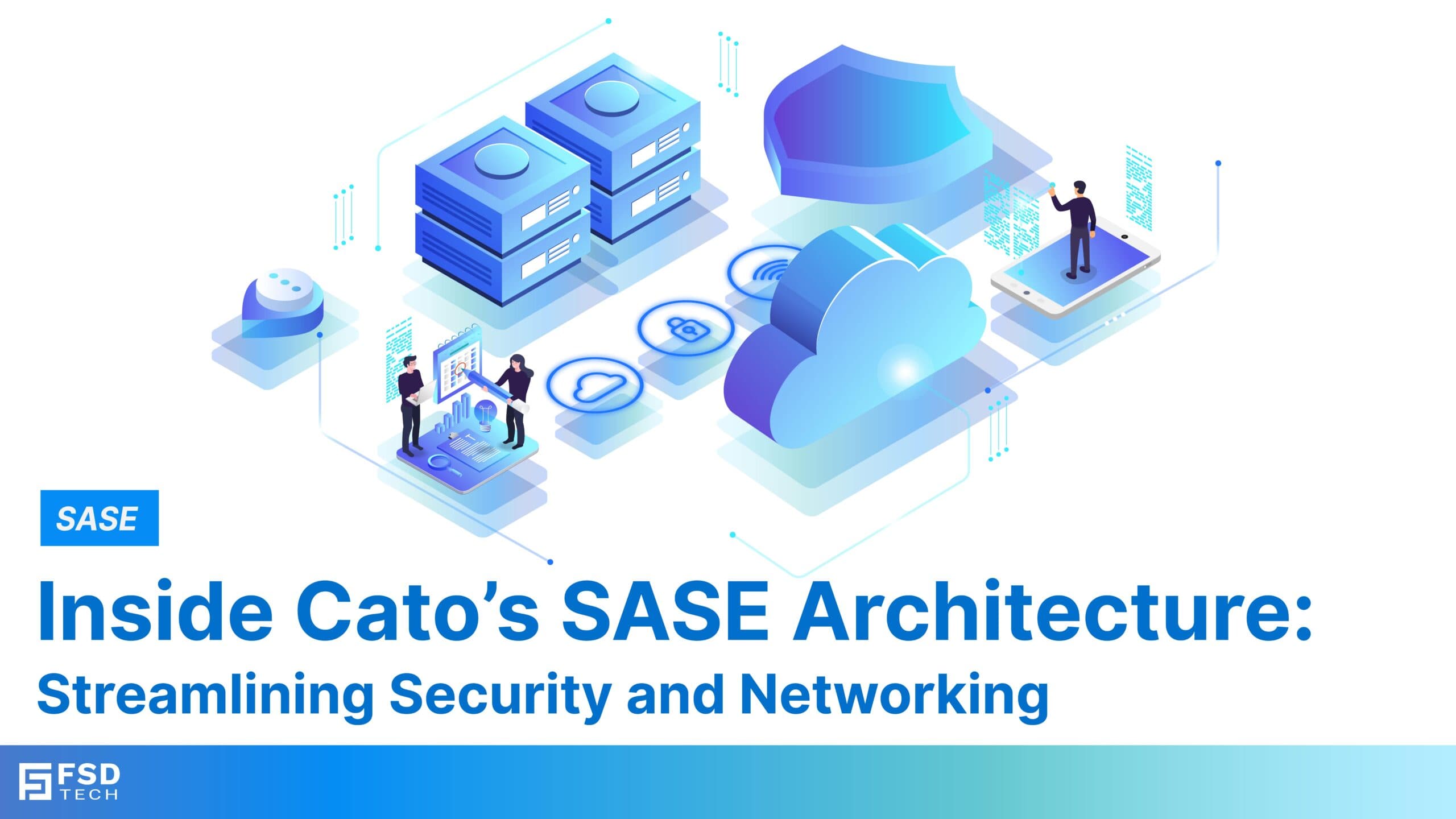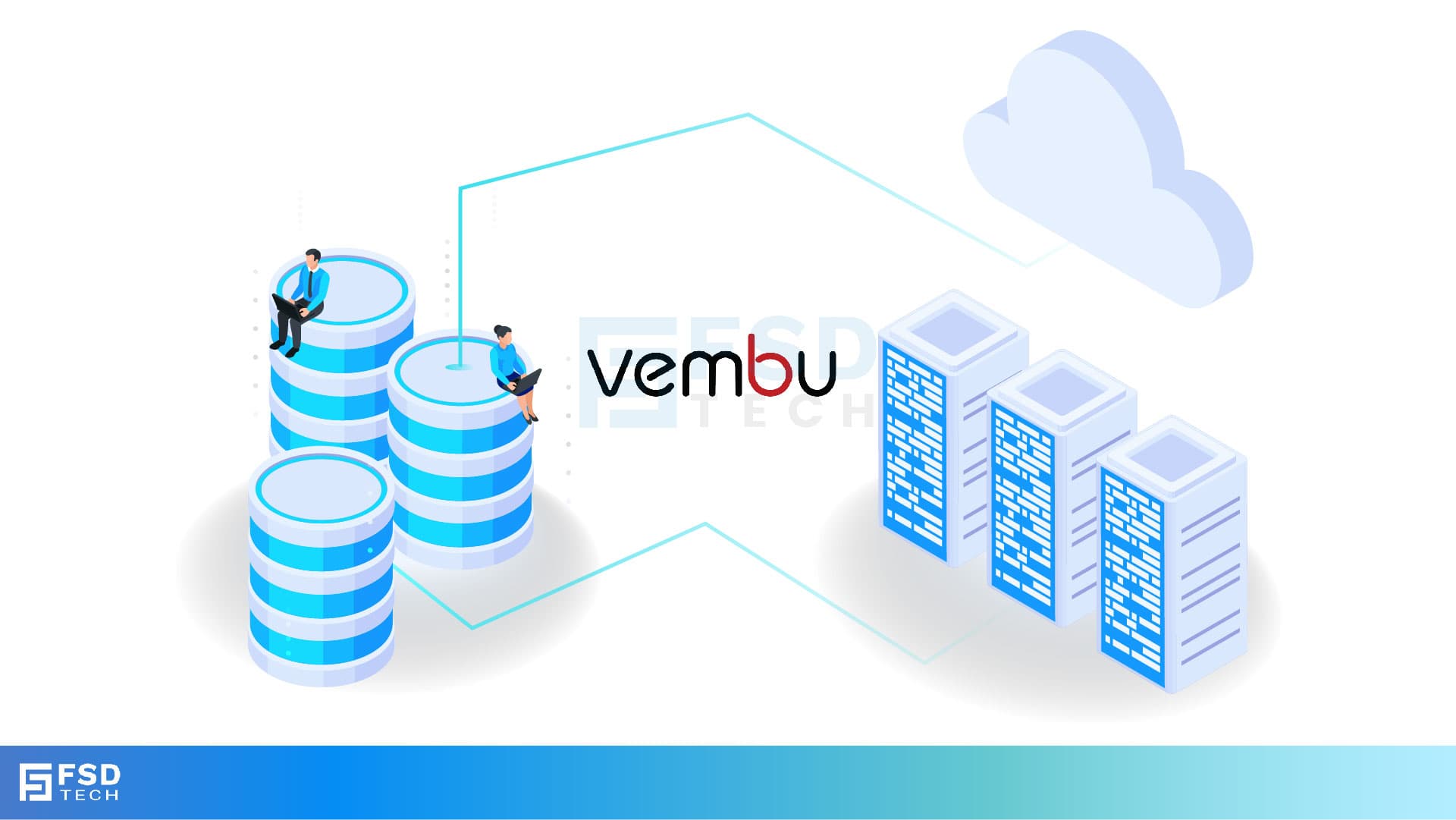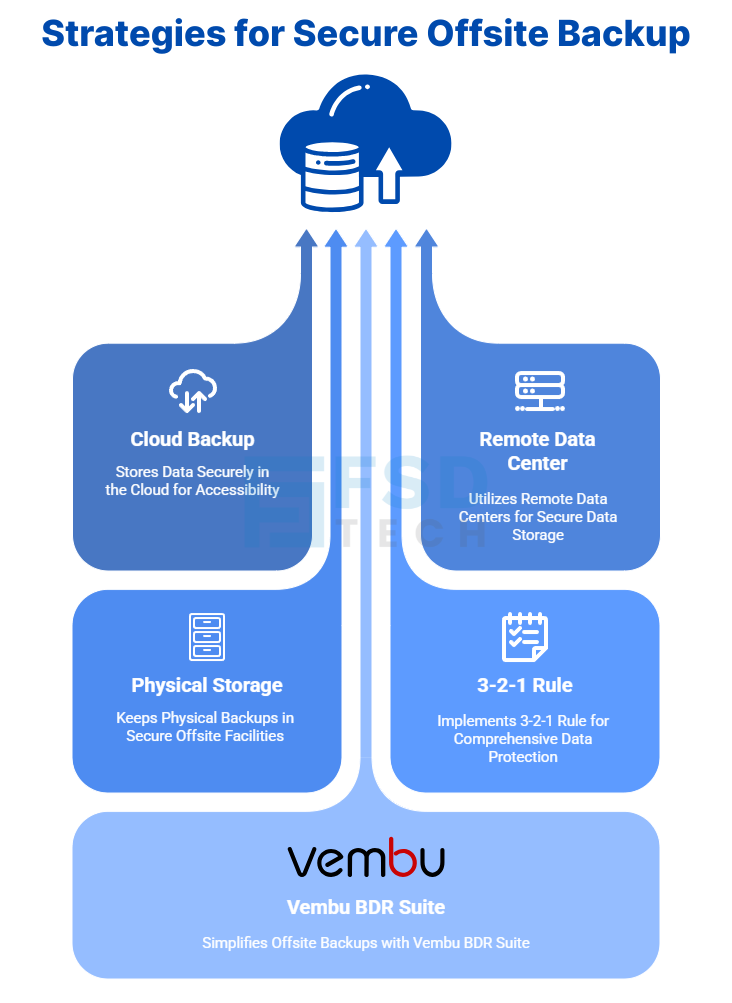
Inside Cato’s SASE Architecture: A Blueprint for Modern Security
🕓 January 26, 2025

In 2022, a small but growing architectural firm in Johannesburg had its entire office destroyed in a sudden fire.
Within hours, everything was gone — the computers, the servers, and the external hard drives they used for backups.
The employees were devastated. Years of designs, blueprints, and client records seemed to be lost forever.
But then, the IT manager remembered something important — they had been running offsite backups to a secure cloud service.
Even though their physical office was gone, their data was safe.
Within two days, they were up and running again from temporary laptops in a co-working space.
The reason they could recover so quickly was simple: their backups weren’t stored in the same place as their main office.
An offsite backup is a copy of your important data that is stored in a different physical location from your main office or server room.
This could mean:
The key idea is that if something bad happens to your main office, your backup is safe because it’s somewhere else.
A widely accepted best practice for backup planning is called the 3-2-1 rule:
This way, you’re protected from both local failures and large-scale disasters.
While you can physically store backup drives in another location, cloud backups have big advantages:
A retail chain in Nairobi had multiple stores, each with its own local server.
When a regional power surge destroyed several of these servers, they were able to restore all the lost data in less than 24 hours — because every store’s data was also backed up to the cloud.
Without offsite backups, it would have taken weeks to rebuild that data, costing them huge losses in sales and inventory accuracy.
Local backups are important, but they’re not enough.
If all your backups are stored in the same location as your main systems, one disaster could wipe out everything.
By keeping an offsite copy — especially in the cloud — you add a powerful layer of protection that could be the difference between recovering in hours or closing your business permanently.
If your backups are all in one place, you’re taking a huge risk. Let’s set up a Vembu Offsite Backup Plan so your data is safe no matter what happens. Book your free disaster recovery consultation today

An offsite backup is simply a copy of your important files and systems that is stored somewhere other than your main office.
This could mean:
The main idea is that even if something happens to your main office, the backup is safe because it’s in a different place.
Because they protect your data from local disasters that could destroy everything in your building, including your local backups.
These disasters could include:
If your only backup is in the same location as your main data, one disaster can wipe out both copies at the same time.
The smartest strategy is to have both.
Offsite backups can protect you from:
Disaster recovery planning is about getting your business running again as quickly as possible after a crisis.
Offsite backups make that possible because they:
Without offsite backups, your recovery options are limited if your main office is gone or inaccessible.
It’s a simple, well-known guideline for safe backups:
Following this rule gives you multiple layers of protection.
Yes. Cloud storage is one of the easiest and safest ways to store offsite backups.
Advantages include:
If not properly secured, yes — which is why encryption is essential.
With Vembu BDR Suite, your data is encrypted before it leaves your office, stays encrypted while it’s in transit, and remains encrypted while stored offsite.
Yes. Local backups let you restore data much faster for everyday problems (like accidentally deleted files).
Offsite backups are there for bigger emergencies where your local backup is lost or unusable.
Ideally, at the same time as your local backups so both are always current.
This can be automated with the right backup software so you don’t have to remember to do it manually.
For most businesses, cloud backups are the best choice because they:
However, large organizations may also use their own remote data centers.
Yes. With Vembu BDR Suite, you can choose to:
You can still have fast local backups for quick restores, and let your offsite backup update in the background at a slower pace.
This way, you get both speed and safety.
If your offsite backups are stored in an immutable state (meaning they can’t be changed or deleted for a set period), ransomware won’t be able to damage them.
This is one of the best protections against modern cyberattacks.

Nasmal is a Solution Architect & Business Analyst focused on AI, Data, Automation, BCP, and Process Optimization. He helps businesses evolve from reactive to proactive, data-driven, and resilient operations. With hands-on expertise, he simplifies complex tech into clear, easy-to-understand blogs.
Share it with friends!

🕓 November 24, 2025

🕓 September 16, 2025

🕓 September 5, 2025
share your thoughts